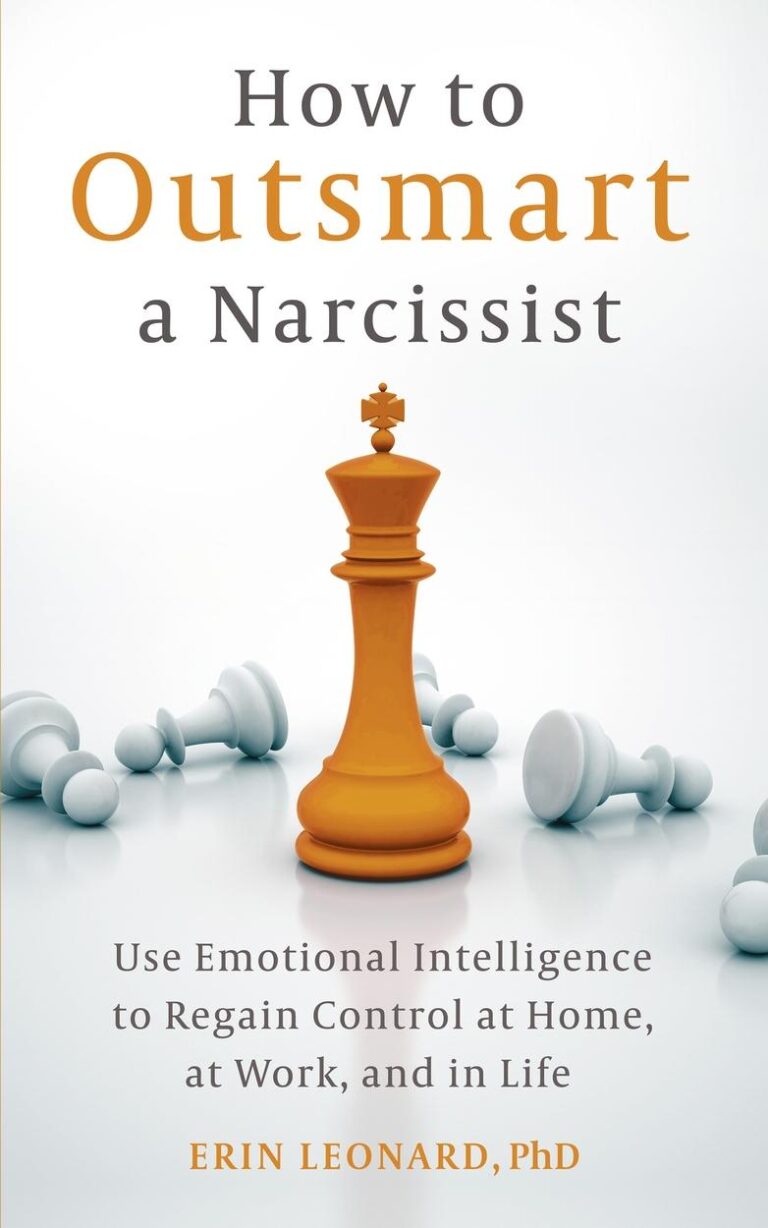If you’ve ever tried to set boundaries or go limited contact with a narcissist, you probably know how tough it can be to make it stick. Unlike typical relationships where less contact naturally leads to more space and healing, dealing with a narcissist often feels like a never-ending tug-of-war. So why does limited contact often fail with narcissists, and what makes them so resistant to these boundaries? In this post, we’ll dive into the reasons behind this frustrating pattern, shedding light on the dynamics at play and offering some clarity for anyone navigating this tricky terrain. Whether you’re currently trying to protect your peace or just curious about how narcissists operate, this article is for you!
Table of Contents
- Understanding the Narcissist’s Need for Control and Attention
- How Inconsistent Boundaries Can Backfire in Limited Contact
- Recognizing Manipulation Tactics That Undermine Your Efforts
- Practical Strategies for Setting Clear Limits That Actually Stick
- Insights and Conclusions
Understanding the Narcissist’s Need for Control and Attention
Narcissists thrive on a constant influx of control and attention, which fuels their fragile self-esteem and reinforces their grandiose self-image. When you attempt to limit contact, they often perceive it as a threat—an attack on their carefully constructed world where they are the center of focus. This need goes beyond mere vanity; it’s a survival mechanism deeply ingrained in their personality. Because of this, any boundary you set doesn’t simply reduce interaction—it triggers their compulsion to regain dominance, often escalating manipulative or coercive tactics.
The craving for control manifests in several ways, such as:
- Persistent demands for reassurance or validation
- Using guilt or emotional blackmail to pull you back in
- Creating chaos or drama to divert attention toward themselves
Understanding these behaviors helps clarify why limited contact can inadvertently intensify a narcissist’s efforts to reassert control. In essence, their reaction isn’t a sign you’re succeeding—it’s a desperate, calculated fight to maintain their psychological hold. Awareness of this dynamic is the first step toward developing a more effective strategy for your emotional well-being.
How Inconsistent Boundaries Can Backfire in Limited Contact
When boundaries aren’t clear and consistent, narcissists can quickly exploit this ambiguity to their advantage. They thrive on confusion and uncertainty, often testing limits repeatedly to see how far they can push you. Without firm and unwavering guidelines, what starts as limited contact can easily spiral into unintentional full engagement. This inconsistency not only drains your emotional energy but also strengthens their hold, making it harder to maintain any form of control over the interaction.
To prevent this, it’s crucial to establish concrete rules around communication and stick to them no matter what. This includes:
- Defining acceptable times and modes of contact
- Being clear about topics off-limits
- Avoiding emotional reactions that encourage entitlement
Each instance of wavering sends a signal that boundaries are negotiable, and narcissists will seize every opening to manipulate or guilt you back into old patterns. Consistency isn’t just helpful—it’s essential for protecting your well-being and minimizing their influence.
Recognizing Manipulation Tactics That Undermine Your Efforts
When dealing with narcissists, it’s crucial to stay vigilant against their manipulative strategies designed to regain control or drain your energy. They often employ subtle tactics like gaslighting, where they distort facts to make you question your reality, or playing the victim to elicit undeserved sympathy. Another common ploy is triangulation, involving third parties to create jealousy or confusion, undermining your sense of stability. Recognizing these behaviors early on equips you with the necessary armor to not only protect your emotional boundaries but also prevent falling into their psychological traps.
To effectively counter these manipulation tactics, develop a clear understanding of their patterns and maintain firm boundaries. Implementing strategies like:
- Consistent communication limits: Decide when and how to interact, and stick to those rules without exception.
- Emotional self-awareness: Regularly check in with yourself to identify feelings that may signal manipulation attempts.
- Documentation: Keep records of interactions to help you stay grounded in truth and resist gaslighting.
Empowerment comes from knowledge and consistency; understanding these ploys reduces their potency and helps you regain control over your own efforts and peace of mind.
Practical Strategies for Setting Clear Limits That Actually Stick
Establishing boundaries with narcissists requires more than just stating your limits—it’s about consistency and clarity. One effective approach is to communicate your limits calmly and firmly without inviting negotiation or emotional debate. Keep your language direct and simple, like “I will not engage in conversations that involve personal attacks.” Reinforce these limits by following through every time, which signals that your boundaries are non-negotiable. Remember, clear limits paired with unwavering consequences create the framework that narcissists struggle to override.
Additionally, using a support system can make a significant difference. Share your boundaries with trusted friends or a therapist who can help you stay accountable. It helps to implement practical tactics:
- Script your responses: Prepare short, neutral replies to deflect manipulative attempts.
- Limit exposure: Control the times and places where contact is allowed.
- Use technology: Tools like message filters or call blockers can reinforce your limits without direct confrontation.
By actively blending these strategies, your limits become a steadfast shield instead of a fragile fence that narcissists can easily slip past.
Insights and Conclusions
Thanks for sticking with me through this exploration of why limited contact often falls short when dealing with narcissists. It’s definitely a tricky dance, trying to find boundaries that stick without getting pulled back into their whirlwind. Remember, understanding the dynamics at play can empower you to make choices that protect your well-being — whether that means going no contact, seeking support, or finding other ways to maintain your peace. If you’ve had experiences with narcissists and limited contact, I’d love to hear your stories or tips in the comments below. You’re definitely not alone on this journey! Until next time, take care of yourself and keep setting those healthy boundaries.

